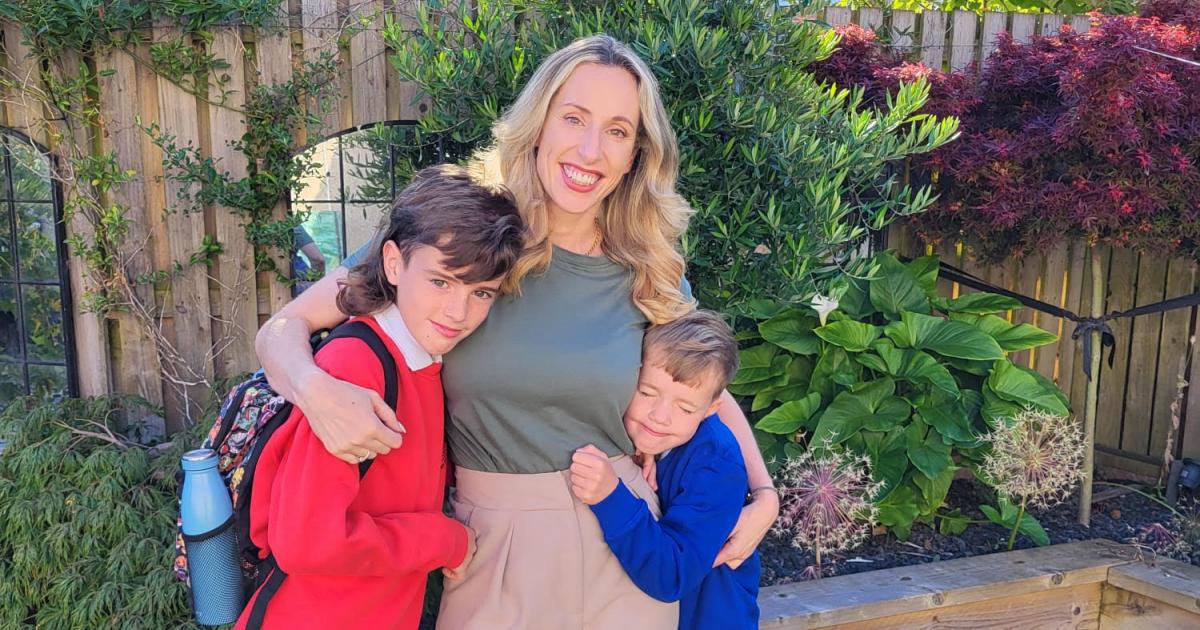Ms Wright’s son Dawson, from Dunbar, was originally assessed as “not deaf” by NHS Lothian when he was six-years-old. However, an audit later revealed that he was one of a large number of children who had their hearing misdiagnosed.
After Dawson ultimately received a diagnosis of glue ear at the age of nine, his family were told that he could face a two-year wait for the grommet surgery he needed to address the condition.
Now, Ms Wright has joined a campaign led by the National Deaf Children’s Society calling on the Scottish Government to introduce safety checks, better accountability, and transparent reporting around audiology services in Scotland.
Read the full report:
Ms Wright told The Herald: “A medical professional confirmed that Dawson had very bad glue ear and that we should get a referral for audiology to discuss grommet surgery.”
“I informed her that we had been trying and had been told it was a two-year wait to which she seemed shocked. She said Dawson could not wait that long.”
Grommet surgery involves draining fluid from the patient’s ear in order to relieve hearing loss.
Ms Wright said that following another hospital visit, the family were again told that it would be up to a two-year wait for Dawson to receive surgery. They were also advised that their only option to speed up the process was to pay for the surgery privately.
This could cost the family between £3,000 and £6,000 which Ms Wright told The Herald they cannot afford.
Now Ms Wright says Dawson and the family have been left behind to deal with his condition. They were advised to purchase a device which drains fluid from the ear called an ‘Otovent’, although Ms Wright says this only provides moderate relief.
She told The Herald that her son’s level of hearing now regularly fluctuates and the onset of an illness such as a cold, flu, or hay fever is enough for it to significantly deteriorate.
“And because he’s got used to it and he’s got ADHD, I think he’s masking quite well,” Ms Wright said.
“I think since he has tried to adjust to it, he wouldn’t be able to identify what a reduction in hearing actually is because this has really been going on since he was born.”
Ms Wright said that living with his condition without treatment has been “hugely difficult” for Dawson, affecting his attainment at school and personal relationships, often leading to him feeling excluded.
“I mean, my son is your typical, I guess, what you would expect of a wee boy with ADHD. Not a bad bone in his body, but constantly getting it wrong and not understanding when to stop.
“A big part of that is because he isn’t taking information via all of his senses in a consistent and similar way to his peers, and that’s hugely affected by his hearing.
“And when his hearing is really bad, his personality completely changes and he can become disruptive in class because he feels disengaged.”
Ms Wright said her son has been left behind at school (Image: Melanie Wright)Ms Wright also says Dawson’s performance in school assessments are being affected.
“He just wasn’t achieving and then at one point he changed and he really worried me because this wee outgoing boy could see the world getting further and further away from him,” she added.
The lack of NHS support has also put strain on Ms Wright’s entire family. She said that Dawson’s hearing means he is unable to engage with conversations in the family home.
“He just sat on the sofa and looked straight. He couldn’t even hear the television. At one point, I was looking at buying the special loop system that you have in a cinema just so he could hear the TV and watch things with us.”
Dawson’s sister was also recently diagnosed with autism, something which Ms Wright said left her struggling to accommodate both her children’s needs.
“My goodness, that point was a very dark one, and I just feel like if I don’t go in and be a problem, which I don’t want to be to these services and to the NHS, I’m not going to get any help for my child.”
Ms Wright said that she wants to see children’s audiology services being given more priority in Scotland as a result of the campaign.
“I’d love to see wait times reduced to at least identify where children are in terms of hearing loss.
“And maybe getting access to things like the Otovent, because that wasn’t paid for by the NHS, that was recommended to us and we purchased it ourselves. But ultimately, they have to assess the kids quicker.”
“It’s too much of an impact for a child. Two years in a child’s life is two years of seven years of their primary school. It’s huge.”
“I’m really worried about my son, and he’s such a happy wee boy. But because of this he’s been depressed, and he’s not been living life in the way he should.”
